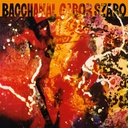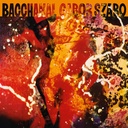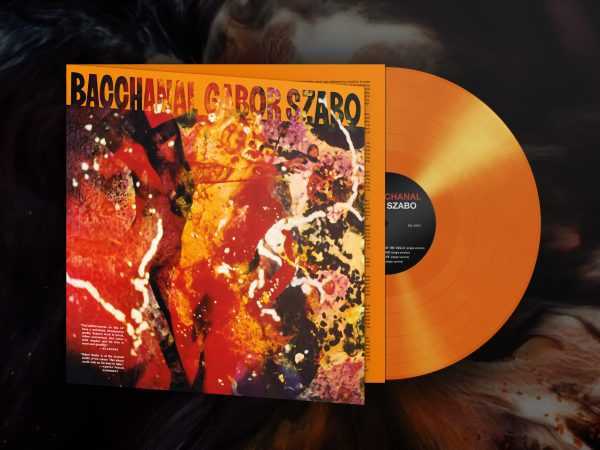TRACKLIST
A1 Three King Fishers 4:50
A2 Love Is Blue 4:17
A3 Theme From Valley Of The Dolls 3:45
A4 Bacchanal 4:55
A5 Sunshine Superman 3:45
B1 Some Velvet Morning 5:10
B2 The Look Of Love 3:15
B3 Divided City 3:22
B4 Theme from) Valley of the Dolls (Single Version) 3:01
B5 Sunshine Superman (Single Version) 2:50
B6 The Look of Love (Single Version) 2:43
B7 Bacchanal (Single Version) 2:43
DESCRIPTION
RE PRESS FROM A NEW MASTER
The long-awaited reissue of rare Eastern and psychedelic Jazz LP by the famous Hungarian guitarist, originally released in 1968. The first time, extended Edition with four bonus tracks: radio version from singles 7” 1968.
Gatefold Vinyl comes with long, exclusively written inner notes by the famous researcher and biographer Douglas Payne.
After recording four albums for Impulse in 1967, the distinctive guitarist
Gabor Szabo cut the three strongest records for the Skye label in 1968-1969: "1969", "Dreams" and "Bacchanal" all of them became legendary classics. This time EBALUNGA!!! are rediscovers "Bacchanal". Szabo's regular group of the era is heard on record for the last time: guitarist Jimmy Stewart, bassist Louis Kabok, drummer Jim Keltner and percussionist Hal Gordon. With the exception of two Szabo originals, the material is comprised of current pop tunes including two songs by Donovan, "Love Is Blue," "The Look of Love" and "Theme from the Valley of the Dolls."
Gabor Szabo was one of the most original guitarists to emerge in the 1960s, mixing his Hungarian folk music heritage with a deep love of jazz and creating a distinctive, largely self-taught sound.
Born in Budapest, on March 8, 1936, Szabo was inspired by a Roy Rogers cowboy movie to begin playing guitar when he was 14 and often played in dinner clubs and covert jam sessions while still living in his hometown. He escaped from his country at age 20 on the eve of the Communist uprising and eventually made his way to America, settling with his family in California.
He attended Berklee College (1958-1960) and in 1961 joined Chico Hamilton's innovative quintet featuring Charles Lloyd. Urged by Hamilton, Szabo crafted a most distinctive sound; as agile on intricate, nearly-free runs as he was able to sound inspired during melodic passages. Szabo left the Hamilton group in 1965 to leave his mark on the pop-jazz of the Gary McFarland quintet and the energy music of Charles Lloyd's fiery and underrated quartet featuring Ron Carter and Tony Williams.
Szabo initiated a solo career in 1966, recording the exceptional album, Spellbinder, which yielded many inspired moments, and "Gypsy Queen," the song Santana turned into a huge hit in 1970. Szabo formed an innovative quintet (1967-1969) featuring the brilliant, classically trained guitarist Jimmy Stewart and recorded many notable albums during the late '60s. The emergence of rock music (especially George Harrison, Eric Clapton, and Jimi Hendrix) found Szabo experimenting with feedback and more commercially oriented forms of jazz.
During the '70s, Szabo regularly performed along the West Coast, hypnotizing audiences with his enchanting, spellbinding style. From 1970, he locked into a commercial groove, even though records like Mizrab occasionally revealed his seamless jazz, pop, Gypsy, Indian, and Asian fusions. Szabo had revisited his homeland several times during the '70s, finding opportunities to perform brilliantly with native talents. He was hospitalized during his final visit and died in 1982, just short of his 46th birthday.
“The performances on this LP have a restrained, introspective quality. Szabo’s work is lyrical, rather economical, and somewhat angular, and his tone is warm and glowing.” – Harvey Pekar, DownBeat
“Gabor Szabo is at the musical zenith of his career. This album could rank as his best to date.” - Billboard
“But for sheer lyrical beauty, few players are in Szabo’s class. His startling use of dissonance is a delight, too, and time and again he will alter a final phrase just slightly, totally reorienting a familiar tune.” – Alan Heineman, DownBeat
“This is definitely one of my ‘go to’ Gabor albums.” Mike Stax, Ugly Things
"Gabor Szabo’s Bacchanal documents one of the earliest and finest examples of what was then known as “jazz-rock.” Years before this new jazz style evolved – or devolved, according to some – into “fusion,” jazz-rock was mostly fashioned by younger jazz players whose ears were open to the emerging sounds coming out of rock and roll, especially those of the Beatles and, later, Jimi Hendrix. " - Douglas Payne




